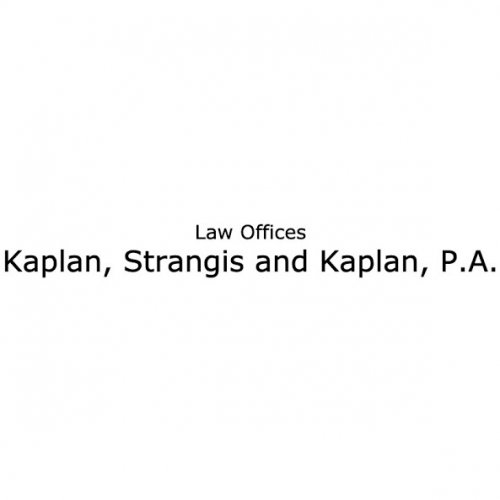Best Tax Lawyers in Minnesota
Share your needs with us, get contacted by law firms.
Free. Takes 2 min.
Or refine your search by selecting a city:
List of the best lawyers in Minnesota, United States
About Tax Law in Minnesota, United States
Tax law in Minnesota deals with the legal principles and regulations related to taxes imposed by the state and local governments. Minnesota collects several types of taxes, including personal income tax, corporate tax, sales and use tax, property tax, and a variety of local levies. Navigating Minnesota's tax law means understanding both state-wide rules and specific local codes. Taxpayers in Minnesota must comply with these complex rules and meet various deadlines for filing and payment, or face potential penalties and interest.
Why You May Need a Lawyer
There are many reasons why individuals and businesses in Minnesota might require legal help with tax matters. Some of the common situations include:
- Receiving a notice from the Minnesota Department of Revenue (MDR) or the Internal Revenue Service (IRS) regarding an audit or reassessment
- Disputing the amount of state taxes owed or challenging penalties and interest imposed by state authorities
- Understanding the tax implications of starting, selling, or acquiring a business
- Planning for estate, gift, or inheritance taxes unique to Minnesota
- Dealing with back taxes or entering into payment agreements with the state
- Navigating multi-state tax issues if you live, work, or do business in more than one state
- Seeking guidance for compliance with complex tax reporting or filing obligations
- Facing criminal allegations related to tax evasion or fraud
- Assisting with offers in compromise or other relief programs
A lawyer can explain your rights, negotiate with tax authorities on your behalf, and develop a strategy to minimize legal and financial risk.
Local Laws Overview
Minnesota's tax laws are codified within both state statutes and administrative rules. Here are some key aspects particularly relevant to taxpayers:
- Individual Income Tax: Minnesota uses a progressive income tax system with four tax brackets. Residents must pay tax on all worldwide income, while nonresidents are taxed only on Minnesota-source income.
- Corporate Franchise Tax: Businesses are subject to a state corporate tax based on their taxable income from Minnesota sources. Both C corporations and some S corporations may be subject to state tax.
- Sales and Use Tax: The state sales tax rate is 6.875 percent, with additional local sales taxes in certain cities and counties. Most goods and some services are taxable, but there are exemptions for items like clothing and groceries.
- Property Tax: Local governments in Minnesota assess property taxes to fund schools, counties, and municipalities. There are various special programs and credits for certain residents.
- Estate and Inheritance Taxes: Minnesota has its own estate tax separate from the federal estate tax, with exemptions and rates that change periodically.
- Filing and Payment Deadlines: Minnesota’s deadlines often match federal tax dates but may differ for certain filings.
- Tax Credits and Deductions: Minnesota offers unique credits such as the K-12 Education Credit and Working Family Credit, as well as property tax refunds for qualifying homeowners and renters.
- Audit and Appeal Rights: Taxpayers have the right to appeal assessments or determinations by the Minnesota Department of Revenue, usually starting with an informal conference or progressing to a formal hearing.
Frequently Asked Questions
What is the income tax rate in Minnesota?
Minnesota has a progressive income tax system with rates ranging from 5.35 percent to 9.85 percent, based on taxable income and filing status.
Do I have to pay Minnesota tax if I work remotely for a company out of state?
If you are a Minnesota resident, you owe Minnesota income tax on all income, even if earned from an out-of-state employer. Nonresidents generally pay tax only on income sourced to Minnesota.
When are Minnesota personal income tax returns due?
Minnesota tax returns are typically due on April 15, the same date as federal returns unless the date falls on a weekend or holiday, in which case the deadline is adjusted.
What should I do if I receive a tax audit notice from the Minnesota Department of Revenue?
Respond to the notice promptly and collect all relevant documents. You may want to contact a tax lawyer for advice and representation during the audit process.
Are Social Security benefits taxable in Minnesota?
Some Social Security benefits may be taxable in Minnesota depending on your total income. The state allows partial subtraction but not full exemption like some other states.
What items are exempt from Minnesota sales tax?
Most clothing and groceries are exempt from Minnesota sales tax, but prepared food, candy, soft drinks, and alcoholic beverages are generally taxable.
How does Minnesota tax property owners?
Property taxes are determined by local governments and based on the market value of the property, with certain exemptions and credits available to qualifying homeowners.
Does Minnesota have an estate or inheritance tax?
Minnesota imposes a state estate tax on estates exceeding a specific exemption amount, which changes periodically. There is no separate state inheritance tax.
What happens if I cannot pay my Minnesota taxes on time?
If you cannot pay in full, Minnesota typically allows payment plans but will charge interest and may assess penalties. Prompt communication with the Department of Revenue is important.
How can I appeal a Minnesota tax decision or assessment?
You can request an appeal by filing a written objection with the Minnesota Department of Revenue. If unresolved, you may seek a conference or pursue the matter in court.
Additional Resources
Individuals seeking more information or assistance with tax law issues in Minnesota may find the following resources helpful:
- Minnesota Department of Revenue - The primary agency administering state tax laws, collecting taxes, and providing taxpayer assistance.
- Volunteer Income Tax Assistance (VITA) - Offers free basic tax help to qualifying taxpayers.
- Internal Revenue Service (IRS) - For issues involving both federal and state taxes.
- Local Legal Aid Societies - May offer free or low-cost legal assistance to eligible individuals with tax controversies.
- County Auditor or Assessor Offices - For property tax questions and appeals.
- Minnesota State Bar Association - Provides lawyer referral services and general tax law information.
Next Steps
If you need legal assistance with a tax issue in Minnesota, consider the following steps:
- Gather all relevant documents, such as tax returns, notices, and correspondence from tax authorities.
- Clearly outline your questions or concerns so you can explain your situation to a lawyer effectively.
- Contact a qualified Minnesota tax attorney. You can find one through referrals, bar association directories, or local legal aid organizations if you meet eligibility criteria.
- Schedule a consultation to discuss your legal needs, potential solutions, and possible costs.
- Follow your lawyer's advice closely and stay proactive in meeting deadlines to resolve your tax matter efficiently and effectively.
Seeking professional guidance early can help you protect your rights, minimize liabilities, and avoid future complications with Minnesota tax authorities.
Lawzana helps you find the best lawyers and law firms in Minnesota through a curated and pre-screened list of qualified legal professionals. Our platform offers rankings and detailed profiles of attorneys and law firms, allowing you to compare based on practice areas, including Tax, experience, and client feedback.
Each profile includes a description of the firm's areas of practice, client reviews, team members and partners, year of establishment, spoken languages, office locations, contact information, social media presence, and any published articles or resources. Most firms on our platform speak English and are experienced in both local and international legal matters.
Get a quote from top-rated law firms in Minnesota, United States — quickly, securely, and without unnecessary hassle.
Disclaimer:
The information provided on this page is for general informational purposes only and does not constitute legal advice. While we strive to ensure the accuracy and relevance of the content, legal information may change over time, and interpretations of the law can vary. You should always consult with a qualified legal professional for advice specific to your situation.
We disclaim all liability for actions taken or not taken based on the content of this page. If you believe any information is incorrect or outdated, please contact us, and we will review and update it where appropriate.
Browse tax law firms by city in Minnesota
Refine your search by selecting a city.










